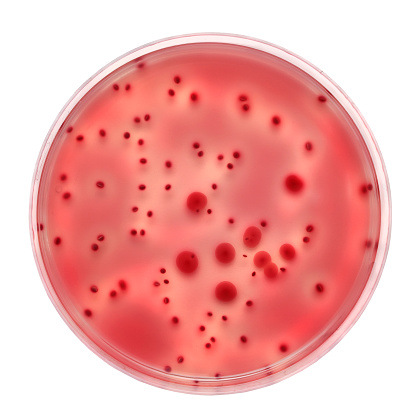
November 16, 2015, by Lindsay Brooke
Antimicrobial resistance – the search for new collaborative research projects
A total of £368,000 is on offer to University of Nottingham researchers who can help to devise interdisciplinary research projects into antimicrobial resistance (AMR).
The World Health Organization (WHO) – staging its World Antibiotic Awareness Week this week – says this increasingly serious global threat to the effective treatment and prevention of a growing number of infections requires action across all government sectors and society.
The University of Nottingham’s ‘Bridging the Gaps: Systems-level approaches to Antimicrobial Resistance’ is part of a £491,000 initiative funded by the Engineering and Physical Sciences Research Council (EPSRC). A launch event will be taking place tomorrow afternoon.
After the launch there will be a series of events designed to bring together researchers and industry experts to discuss the challenges posed by antimicrobial resistance. Funding will be made available to researchers via the Bridging the Gaps awards (maximum £15,000 per application) and the best projects resulting from four Sandpit events (£20,000 per winning team). This process is intended to result in innovative cross-disciplinary research projects in AMR by applying engineering and physical sciences methodologies in new ways. A participant in the 2007-2010 Bridging the Gaps programme said “I found it really productive, because I was able to work with someone outside my field who was well known, and the ideas that this generated have led me to co-write a larger proposal with many partners”.
John King, Professor of Theoretical Mechanics in the School of Mathematical Sciences, is leading the project. He said: “We want to draw on the wealth of expertise this University can offer and challenge those experts to pool their resources and devise new and innovative research to meet the growing threat of antimicrobial resistance.”
An example of how unusual research collaborations can produce the most unexpected results is the work carried out by Christina Lee in the School of English and microbiologists Dr Freya Harrison, Dr Steve Diggle and Dr Aled Roberts. They discovered that a one thousand year old Anglo-Saxon remedy for eye infections, which originates from a manuscript in the British Library, kills the modern-day superbug MRSA.
Antimicrobial Resistance occurs when the harmful bacteria learn to survive exposure to medicines designed to kill them or stop their growth.
No prior involvement with AMR research is needed. The event is open invitation to any researchers interested in engaging in novel and cross-disciplinary research into antimicrobial resistance. The launch event has capacity for 100 people and there are still spaces.
The launch event is being held in the Senate Chamber, Trent Building, University Park Campus, Nottingham between 2pm and 7pm on Tuesday 17 November 2015.
To register go to www.bit.ly/1PQOLoV or for more information contact harry.moriarty@nottingham.ac.uk
The Launch event for this grant will provide an overview of issues in tackling antimicrobial resistance, current funding opportunities (both through and complementary to the Bridging-the-Gaps initiative), as well as opportunities to present research interests and for networking.
Programme:
14:00-14:10 Welcome and summary of the pump priming funding mechanisms available, Professor John King (Principal Investigator)
14:10-14:50 Meeting AMR policy challenges with excellent interdisciplinary research, Nancy W Mendoza (Society for Applied Microbiology)
14:50-15:05 Refreshment break (15 minutes)
15:05-15:35 Priority themes and doctoral training in antimicrobials and antimicrobial resistance research, Professor Paul Williams (Centre for Biomolecular Sciences)
15:35-15:50 Antimicrobial resistance (AMR) research and the RCUK AMR programme (cross-council: BBSRC NERC MRC), Professor Liz Sockett (Medicine & Health Sciences)
15:50-16:20 Multidisciplinary approaches to research AMR in agricultural slurries and manures, Dr Dov Stekel (Biosciences)
16:20-19:00 Brief overview of attendees’ research areas (2 minutes per individual, optional) followed by a networking opportunity with wine and cheese
No comments yet, fill out a comment to be the first

Leave a Reply